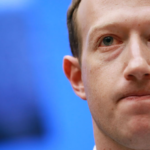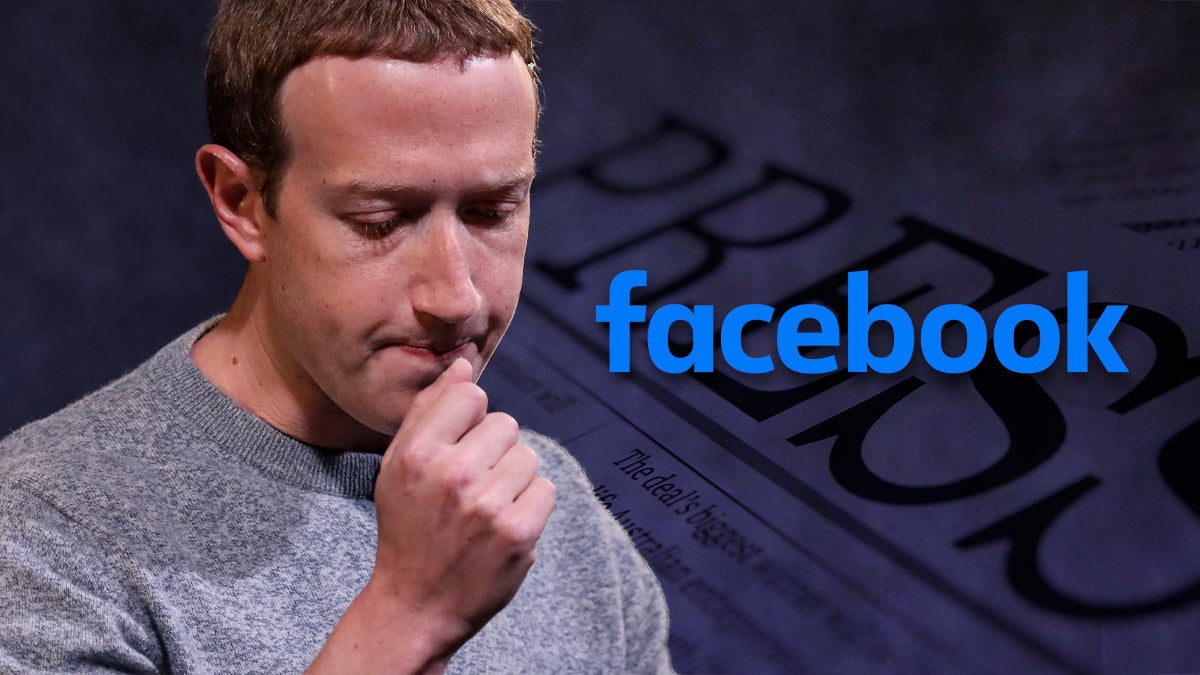Eighteen years after the launch of the social network, it seems that Facebook has finally reached its peak of growth. Not only did Facebook and Instagram lose market share of younger users to TikTok, but for the first time this quarter, the flagship app saw daily user numbers decline and monthly users continue to stagnate at the moment. global scale.
“Facebook is definitely facing an existential crisis,” Iliya Rybchin, a partner at management consulting firm Elixirr, told TheWrap. “With Facebook, the strategic threat to them is not that they don’t have the right product; the strategic threat is that they don’t have the right value proposition for the younger generation.
For a time, at least on the outside, it looked like Facebook and the rest of what is now Meta Platforms were operating as usual, even as the company faced repeated blows to its reputation, from Cambridge Analytica to Frances Haugen. Its advertising business has skyrocketed throughout 2020, and it had a massive revenue of around $118 billion and a net income of $39 billion in 2021. It even recently managed to cross the bar of $1 trillion in market capitalization, joining the ranks of Amazon, Google, Microsoft. and Apple.

But Meta’s real problems are starting to catch up – and the numbers show it. This month, the social giant missed its fourth-quarter earnings expectations and shares began to fall more than 25% in that week. Its loss of about $230 billion in market value marked the biggest one-day crash for a U.S. company in stock market history, and it could lose more if the downtrend continues.
“Meta knows people are suspicious of the Facebook brand, especially young people, and there’s nowhere to go from here but down,” said Stephanie Llamas, the research firm’s chief analyst. on the VoxPop metaverse. “Younger generations are moving to other platforms, and they’re likely to eventually do so in headsets. Meta is here for the long game, hence their enthusiasm for the metaverse – and they saw it coming a mile away.
Yet the metaverse that Zuckerberg and other tech leaders envision is likely years, if not decades, away from being a reality — that is, becoming the next evolution of the internet. Last year, Meta’s Reality Labs, its augmented and virtual reality division, generated $2 billion in revenue with an overall loss of $10 billion. This past quarter, it reported revenue of $877 million but lost $3.3 billion. Zuckerberg explained to investors that doubling down on the metaverse effort would cost in the short term, but argues it will pay off in the long term — not everyone sees it that way, and some think it might never happen.
“They will eventually recoup their losses, but it will take years,” Llamas told TheWrap. “At this rate, we are looking at five to ten years before virtual reality is profitable. … We should celebrate their dedication to innovation and experimentation, but that’s just not what investors are looking for. They are looking at the next quarter, not the next decade.

Rybchin was skeptical of the Metaverse as a strategy: “I don’t think it’s a viable business, maybe ever. The concept has been around for decades. Granted, the UX is much better, but Meta needs more than great UX to really take off. … Sure, there may be some fun experiments in Meta, but it will never reach the magnitude that people like Zuckerberg think it will.
Additionally, even if Zuckerberg succeeds in building a business ecosystem around the metaverse, the company will need to find an advertising model without relying on targeted ads. There are also unresolved consumer safety issues, and although it was renamed Meta last October, Facebook is still strongly associated with its image.
“The flood of misinformation on its Facebook platform has tarnished Meta’s reputation, and it’s likely that online harm and harassment will only escalate in the metaverse,” said Laura Petrone, principal analyst at GlobalData. . “It remains unclear how Meta will balance the need to monetize the metaverse with the promise of building a privacy-respecting virtual environment. As on its flagship social media platform, targeted advertising will be the source of the problems of data privacy and misinformation in Meta’s metaverse.
In addition to Zuckerberg’s issues, the company has faced challenges due to Apple’s recent privacy changes in iOS 14. Because it affects how apps can display targeted ads to users, Meta said that he estimates that these ad tracking changes will cost him $10 billion in ad revenue in 2022. This ultimately exposes the vulnerability in Facebook’s business model that is tied to targeted ads.
“Meta’s weak outlook shows the social media company still bears the scars of Apple’s iOS changes,” Petrone added. “It will have to dismantle the targeted advertising infrastructure of its platforms and replace it with a privacy-centric infrastructure. At the same time, the company is investing heavily in the metaverse, in particular augmented and virtual reality technologies, which has impacted profitability.

The only weapon Meta has left in its arsenal to take down TikTok is Instagram, which the company acquired in 2012 for $1 billion before unsuccessfully trying to buy Snap in 2013. The company can rely on this to generate ad revenue, especially because it sees a drop in ad revenue for these shorter videos.
“We’re seeing content have higher organic reach because Meta is so focused on promoting its use in the app,” Flynn Zaiger, CEO of marketing agency Online Optimism, told TheWrap. “There are also fewer ads on it, which hurts Facebook’s revenue, but proves their commitment to trying to get more users to give it a chance. For now, though, TikTok’s incredible algorithmic hook might be too large to cause users to switch networks.
Zaiger points out that Reels may still be able to appeal to older audiences, but copying the feature doesn’t necessarily mean Instagram can drive younger users away from TikTok. Many TikTok compilations end up on YouTube, Snap, and Twitter anyway.
“Reels are TikTok’s cheap substitute through and through,” Chris Tompkins, CEO of social media marketing agency The Go! Agency, says. “Where it’s truly exceptional in terms of views and reach, engagement is nowhere near the level of a TikTok. You could actually take a week of Reels to match the impact of a single TikTok.
Facebook’s user base has been aging for some time, with its own research revealing that American teens on Facebook have shrunk 13% since 2019 and are expected to drop 45% over the next two years. Zuckerberg has said more than once on earnings calls that TikTok poses a major threat to its platforms as Gen Z users flock for video entertainment. In the fourth quarter, the Facebook app lost about 1 million daily active users after falling from 1.930 billion to 1.929 billion users worldwide, while monthly active users remained stable at 2.91 billion.
“If TikTok wasn’t there, the younger demographic would gravitate to another non-Facebook platform. For anyone under 30 or even 40, Facebook is seen as the platform where football moms from bored suburbs are going to debate which studio offers the best yoga classes,” Rybchin said.

